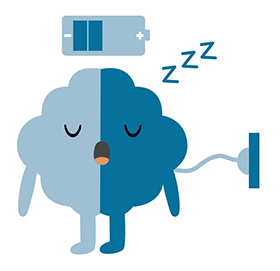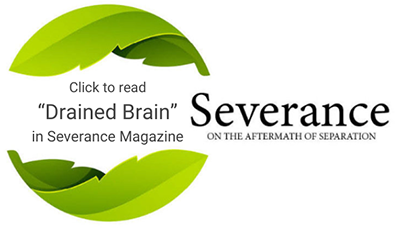Drained Brain — When Professionals Miss Relational Trauma and Jump Right to an ADD Diagnosis

"One week, as the big test for numbers and colors approached, I couldn’t remember what color was what, so I broke a barrel of crayons apart in frustration trying to sort it all out. I didn’t understand at the time, but I was living with a constant fear of rejection and subsequent loss.”
—Lisa “LC” Coppola, “Drained Brain: What Happened When Professionals Missed my Relational Trauma and Jumped Right to an ADD Diagnosis,” in Severance Magazine, February 5, 2024
For adoptees like LC who might have grown up being admonished with sharp requests to “Pay attention!” followed by a diagnosis of Attention Deficit Disorder (ADD), it’s conceivable that professionals didn’t consider that attachment issues, chronic worry and hypervigilance, ruminating thoughts, and subsequent compulsive behavior are also symptoms of relational trauma.
As a seasoned therapist and BPAR clinician, it’s clear to LC now that “without attachment- and trauma-informed treatment, those executive functioning interventions didn’t stand a chance.” The accommodations in school and stimulant medications didn’t help improve her grades, nor did they alleviate the symptoms that led to so many of her ongoing frustrations.
Though neither she nor her parents understood the impact of this at the time, today LC realizes that the chaos and insecurity in her childhood created early ongoing patterns in her thinking and stress response system. “All relinquished and adopted children start off early with a kind of extraordinary fear and loss.” Even the professionals didn’t realize that many of her learning struggles were a function of her brain trying to protect her “in some well-meaning (but malfunctional) way.”

Earlier this year, Severance Magazine spotlighted this gap in understanding when they published LC’s article, "Drained Brain: What Happened When Professionals Missed my Relational Trauma and Jumped Right to an ADD Diagnosis."
The article discusses:
- The impact of chronic stress from birthmother loss
- Research about the connections associated between early life stress and brain changes
- Why it’s important for adoptees diagnosed with ADD or ADHD to acknowledge and unravel early childhood stresses
- The value of working with a trauma-informed therapist
- How it’s possible to move from self-shaming and self-abandonment to self-compassion
It’s not uncommon for young children’s adoptive parents to associate learning-related behaviors with a potential ADD diagnosis and to seek professional help focusing on changing the behaviors. Fortunately, there are some professionals who recognize the need for a conversation highlighting relational trauma and its impact on brain formation and focus.
BPAR clinician Darci Nelsen, PhD, who was interviewed for the "Drained Brain" article, notes, “When we focus strictly on behavior modification in order to decrease these behaviors,” she says, “we end up focusing too much on the ‘what’s happening’ versus the ‘why it’s happening.’” Unless a professional considers the presence of trauma, the child may be “treated for behavioral symptoms and not actually resolve the real underlying issue that might be driving the behavior.”
At BPAR, we teach adoptive parents to view their children's behavior as a form of communication about past trauma, especially since it's so hard for kids to verbally articulate—or even understand—what they're feeling inside. Adoptive parents, professionals who work with adoption, and children who had early life trauma and separation will benefit from reading LC’s article.
